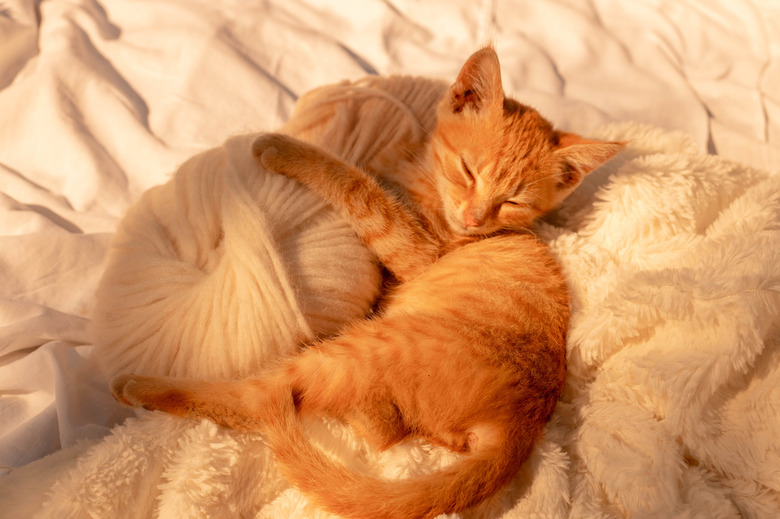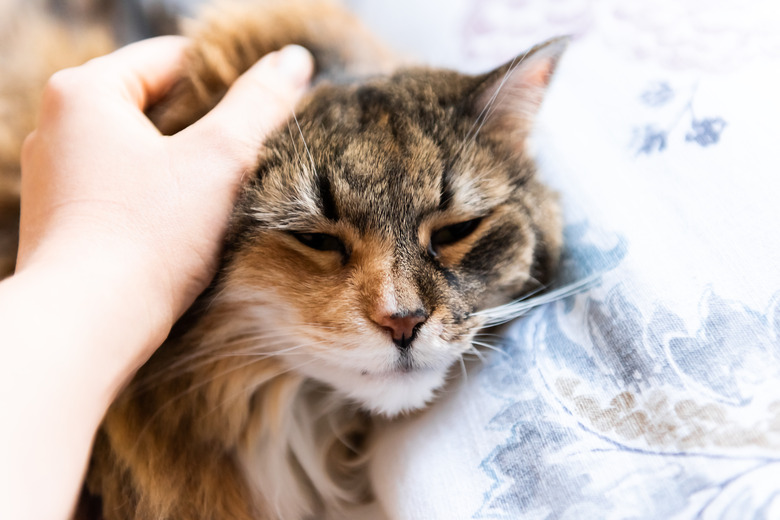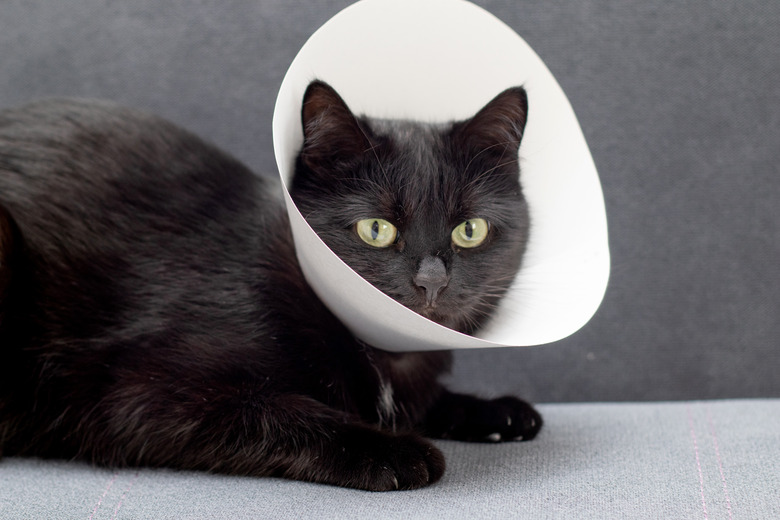Does Purring Always Mean Your Cat Is Happy?
A cat curled up on a cozy blanket or in a sunny windowsill and emitting a soft purr usually conjures feelings of warmth, contentment, and just a general sense of peace for most people. It's common knowledge that a purring cat often indicates an animal in a very relaxed or even pleasurable state, probably due to the fact that the sound is heard in tandem with a snuggly feline. Sometimes, however, purring can indicate that a cat is feeling something other than happiness, namely, stress. Keeping an eye out for physical cues, like body language, can help you understand why your cat may be purring, and whether you should offer them a friendly scratch, leave them be, or consider intervening with medical attention.
Why do cats purr?
Why do cats purr?
The short answer to this question is: no one knows for sure. What is for sure is what's happening physically when a cat purrs. The Library of Congress states that a cat's larynx is responsible for separating the vocal cords, which allows the purring sound to be heard. The larynx gets a signal to do this from the neural oscillator in the brain. It remains unclear whether this communication is voluntary or involuntary, although some research suggests that endorphins may influence the signals sent by the brain.
What research has been able to do is correlate purring with specific behaviors in order to assign meaning to the type of purr that shows up in certain situations. Generally, purring is a sign of a happy cat, especially if your cat appears to be in an overall relaxed state. You've probably noticed happy cats purring after you've offered a friendly scratch between the eyes or behind the ears, or when he stands straight, possibly with a slight arch of the back, to rub his side against your legs after you walk through the front door. Cats begin purring as kittens, as a bonding ritual with their mother, and the low hum is usually carried into adulthood for most cats.
Other meanings of purring
Other meanings of purring
While purring usually means your feline pal is happy and content, cats also purr in an effort to self-soothe, like if they're feeling stressed out or anxious, says The Humane Society. A 2001 study found that cats will sometimes purr when they are injured in an effort to slowly heal those wounds. According to researchers, the frequencies emitted by cats clocks in at somewhere between 25 and 150 hertz, the low end of which is seen in electrical treatment for bone growth and healing fractures.
A purring cat in a stressed out state doesn't necessarily mean that she has a broken bone, however. Purring may be used to generate a calming or soothing effect, similar to kneading a blanket, both traits which are early bonding efforts with mother cats in the earliest days of kittenhood. Cats who cohabitate have even been known to lay next to an injured companion and purr, seemingly in an effort to heal the other.
Cats and body language
Cats and body language
Not sure if your cat's purr is a sign of a laid back feline or a vocal signal to step back? One easy way to tell is to read the rest of your cat's body language, which cats often use to communicate with each other, as well as their human counterparts. Generally speaking, a cat that is exhibiting welcoming body language can be seen with flat fur, forward-facing ears, and a still tail that isn't twitching tapping the surface beneath it. When cats feel anxious or bothered, the hair can sometimes stand up, the ears usually lay flat on their heads facing behind them, and their tail is either tucked between their legs or whipping around from side to side.
Conclusion
Conclusion
More often than not, purring is the sign of a contented cat, and shouldn't sound any alarms.
Sometimes purring can indicate stress or injuries, which is often combined with body language signals that indicate irritability, and may be seen in tandem with other vocalizations, like yowling or hissing.
Because our often aloof little friends can show happiness in a number of ways, considering their overall health and mood can also help you determine whether a purr is anything to worry about. A healthy appetite and water consumption, regular sleeping routines, and regular physical activity is usually a good indicator that your cat does feel good.


